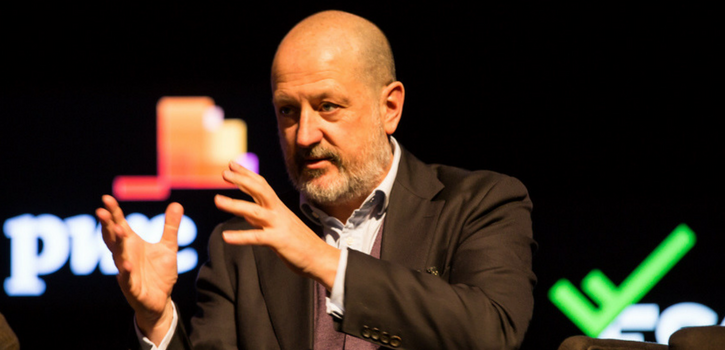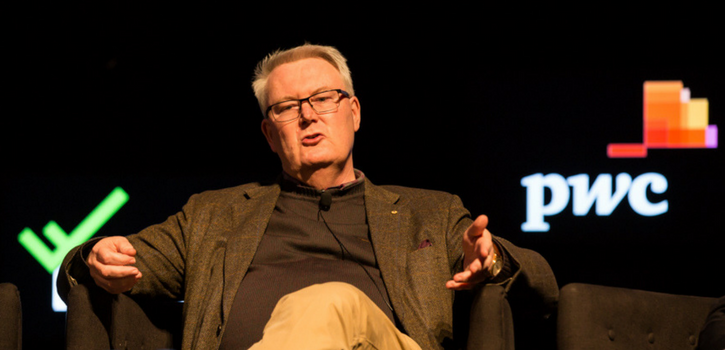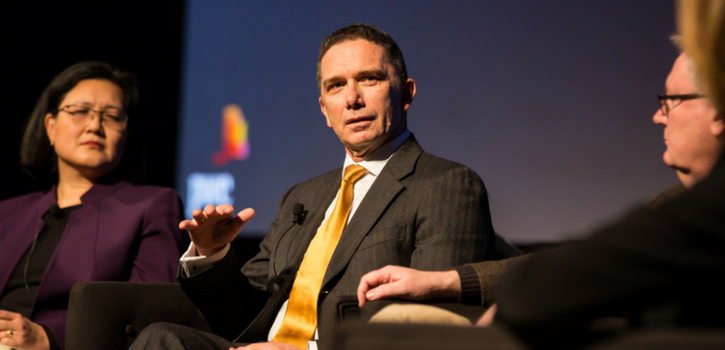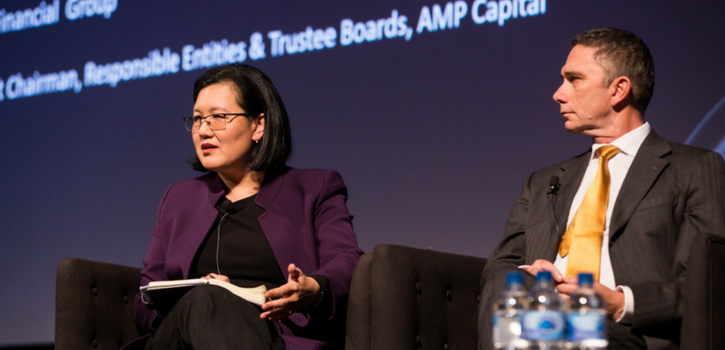Trust is in short supply, so rebuilding will not be easy.
Rebuilding Trust
By Keith Barrett
With reputations under siege across the financial services landscape, how does a business rebuild trust? It’s harder to do when trust didn’t necessarily exist in the first place.

Russel Howcroft, Chief Creative Officer at PwC, said that a shift in focus from brand development to formal corporate communications had fundamentally altered the relationship between many of Australia’s largest businesses, and the Australian public.
“In the 1980s, corporates spent on their corporate brand. All of corporate Australia was spending money on pursuing their reputation — putting goodwill into the goodwill bucket. In 1987 we had the crash, and in 1991 we had the recession, and what happened [after that] was that corporate affairs took over managing the corporate reputation of the brand.
“All of a sudden corporate affairs and reputation become a reactive strategy, as opposed to something you’re investing in over the longer term. Of course reputation is going to decline. I don’t think it’s a surprise we’re in the situation where there isn’t a lot of goodwill in the goodwill bucket.”
The panellists discussed that’s it’s not enough to be good at what you do — you have to be able to communicate it. Attendees were told that businesses need to communicate what they’re good at — and in times of turmoil, it’s not about staying quiet, it’s about doubling down and being vocal in that time of stress.

“Trust only arrives when you declare in very clear terms what you are, what you stands for, and they set the basis by which you’ll be judged,” Simon Longstaff, Executive Director of The Ethics Centre explained.
“And the more you react in accordance with that claim, the greater the level of trust.”
Having a corporate mission and sticking to it is equally important, even if what you’re saying isn’t what people want to hear.
“I’ve seen too many companies tempted to think that they need to adjust their identity to suit the expectations of society, in which case they stand for nothing other than that point, which shifts from one point to another,” Longstaff said.
“They will blow wherever the wind happens to blow, and people know that.”

“I’ve never worked through a time where there is so much pressure in the system, and in organisations like ours it always come down to … looking for commitment from people,” Brad Cooper, CEO of BT Financial Group said.
He said that they were looking for commitment, not compliance, from staff. Cooper talked through his business’ decision to tackle grandfathered commissions, and the pricing on its platform — decisions that will cost the business $110 million annually.
Ming Long, Independent Chairman, Responsible Entities & Trustee Boards, AMP Capital, zeroed in on the director landscape, and had some guidance for those in the trenches at the moment.

She said that there was “chronic unease” among the director community today, and that the landscape has completely changed, which now results in directors “leaning in”.
“I’ve seen a range of emotions from people, who are really angry, or they don’t know what to do now, or just the despair which I’ve seen,” Long said. “In some respects, I look at that and think, 'it’s really good that you’re feeling that. Can you just steep yourself in that for a little bit longer, because I want you to remember this moment, and never forget it’.
“We’re in an industry that is critical to the financial wellbeing to Australians. [Financial institutions] are an essential service.”
Long also said that it was time for directors and executives need to be out there speaking to the media, because there was a real need for businesses to be known for having a position on items, like the same sex marriage debate.
Longstaff said that he had been in meeting where the right thing to do was ignored, until a higher power intervened.
“I’ve been sitting around in a few boardrooms like in banks, and part of the conversation is, 'we know what we should do, but we’re not going to do it because it might involve some competitive disadvantage. We’re going to wait until we’re forced to by the regulator’.
“I think they’re mad.”

